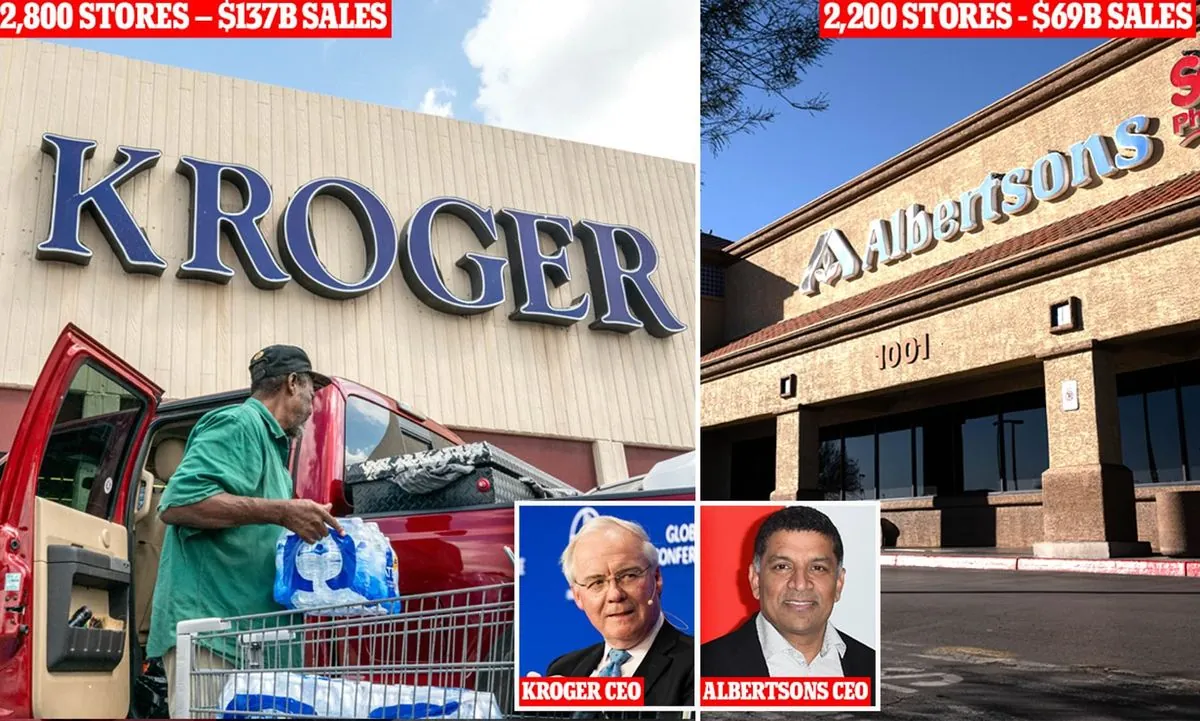The proposed $25 billion acquisition of Albertsons by Kroger is facing a series of legal challenges, with three separate trials scheduled to conclude by October 2024. This unprecedented legal battle highlights the complex antitrust concerns surrounding the merger of the two largest supermarket chains in the United States.
The first trial, set to conclude on September 18, 2024, in Portland, Oregon, involves the U.S. Federal Trade Commission (FTC) and a coalition of states presenting their case against the merger. Concurrently, a second trial began on September 16 in Seattle, where Washington state's attorney general is contesting the deal. A third trial is scheduled to commence on September 30 in Denver, Colorado.
These legal proceedings have significantly increased costs and extended the timeline for Kroger and Albertsons. The companies have already spent $864 million on merger-related expenses this year. William Kovacic, an antitrust expert at George Washington University, noted that this multi-pronged legal approach presents "an unwelcome additional collection of obstacles" for the merging entities.
In Washington state, where Attorney General Bob Ferguson is leading the charge, the merger's impact could be substantial. Half of all grocery sales in the state are through one of the two chains, and 124 stores are slated for transfer to C&S Wholesale Grocers if the merger proceeds. Ferguson's concerns extend beyond price increases to include potential store closures and the impact on unionized workers.
Colorado's lawsuit, spearheaded by Attorney General Phil Weiser, focuses on the merger's potential effects on local food suppliers and farmers. Weiser emphasized the importance of maintaining competition between the two companies to support local agriculture.
The Oregon trial has featured testimony from grocery executives, union leaders, and economists. The FTC and state coalition argue that the merger would likely increase prices and diminish workers' bargaining power by eliminating direct competition between the chains.
Kroger maintains that the merger will result in lower prices and higher wages, arguing that only "global, non-unionized giants like Walmart, Amazon and Costco" would benefit if the deal is blocked. The company has pledged not to close stores as a direct result of the merger, though this does not preclude future consolidations.
"Only global, non-unionized giants like Walmart, Amazon and Costco will benefit from this deal being blocked."
The outcome of these trials will have far-reaching implications for the U.S. grocery market. If approved, the merged entity would control approximately 13% of the market, with combined annual revenues of about $200 billion. The deal also includes plans to invest $1.3 billion in improving Albertsons stores.
As the legal battles unfold, consumers, workers, and industry observers await a resolution that will shape the future of grocery retail in America. The courts' decisions will not only affect Kroger and Albertsons but also set precedents for future mergers in the increasingly consolidated supermarket sector.
